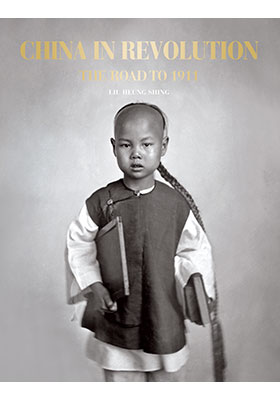China in Revolution
The Road to 1911
(壹玖壹壹:從鴉片戰爭到軍閥混戰的百年影像史)
ISBN : 978-988-8139-50-7
October 2011
416 pages, 10″ x 13″
- HK$680.00
Also Available on
The 1911 Revolution ended dynastic rule in China and paved the way for the founding of Asia’s first republic. Triggered by an accidental bomb explosion in Wuchang (modern-day Wuhan), the revolution marked the culminating point of decades of internal rebellion, foreign aggression and political decline; its leaders drew on a ferment of reformist and revolutionary ideas produced by some of China’s greatest modern thinkers. Although 1911 did not resolve China’s problems, it changed the country for ever, clearing a path for modernisation, and making possible the more decisive revolution of 1949.
China in Revolution assembles a remarkable survey of historical photographs from leading collections around the world. The images stretch from the Second Opium War to the Boxer Rebellion and wars with Russia and Japan, the outbreak of revolution, through the rise and fall of Yuan Shikai and the ensuing warlord era.
Accompanying an introductory essay by the editor Liu Heung Shing are essays from three scholars of revolutionary China — Joseph Esherick of UC San Diego, Zhang Haipeng of the Chinese Academy of Social Sciences, and Max K.W. Huang of the Academia Sinica — reflecting on the causes, achievements and failures of 1911, and its enduring meaning.
“This book is simply superb. Liu Heungshing travelled the world to secure the rare collection of photographs that present the last 100 years of China’s tumultuous history in the most vivid, searing light yet achieved in a single volume.” —James Kynge, author of China Shakes the World
“China’s tumultuous encounter with the West over a century is captured in this remarkable collection of photographs. Combing archives around the world, Liu has unearthed images at once poignant and provocative, of mandarins and schoolboys, officers and ear-cleaners inhabiting a country on the cusp of modernity. China in Revolution is a unique visual history of an era that continues to shape Chinese sensibilities today.” —Peter Hessler, author of River Town: Two Years on the Yangtze


